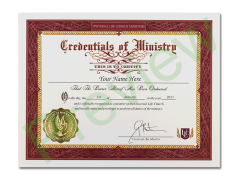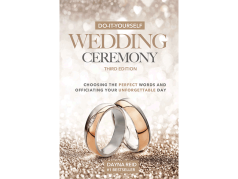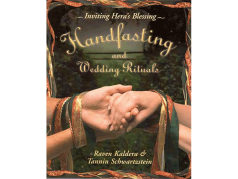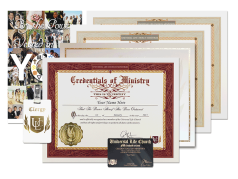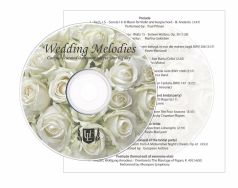License to Marry People
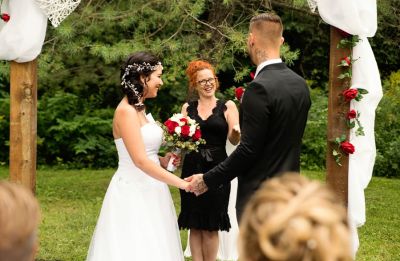
Obtaining a license to marry people, often referred to as being authorized to officiate weddings, is a process that allows individuals to legally perform wedding ceremonies. This authorization is necessary to ensure that marriages are legally recognized and comply with state and local regulations. The process for obtaining this license can vary based on the jurisdiction and the specific circumstances of the officiant. This guide will explore the various aspects of becoming licensed to marry people, including the types of officiants, the legal requirements, the steps to obtain the license, and additional considerations.
Types of Wedding Officiants
- Clergy: Ordained ministers, priests, rabbis, imams, and other religious leaders who have been given the authority to perform weddings by their religious organizations.
- Licensed Lay Ministers: Individuals who may not be ordained but have received specific training and licensure from their religious community to conduct weddings.
- Judges and Justices of the Peace: These public officials are often authorized to perform weddings as part of their official duties.
- County Clerks and Notaries Public: In some jurisdictions, county clerks or notaries public can perform wedding ceremonies.
- Professional Wedding Officiants: Individuals who have obtained certification or licensing to officiate weddings without a religious affiliation.
- Friends or Family Members: Some couples prefer to have a close friend or family member officiate their wedding. This can be done through online ordination or special temporary authorization.
Legal Requirements for Obtaining a License to Marry People
Some couples prefer to have a close friend or family member officiate their wedding. This can be done through online ordination or special temporary authorization.Some couples prefer to have a close friend or family member officiate their wedding. This can be done through online ordination or special temporary authorization.
- Religious Ordination: Many religious organizations have their own processes for ordaining ministers or clergy. This often involves completing theological education, undergoing training, and participating in a formal ordination ceremony.
- Online Ordination: For those not already affiliated with a particular religion, online ordination services such as the Universal Life Church (ULC) provide a quick and accessible way to become ordained. These organizations typically require filling out an application and may charge a fee.
- State or County Registration: In many jurisdictions, officiants must register with the state or county where they intend to perform weddings. This usually involves submitting proof of ordination or certification and completing any required paperwork.
- Additional Documentation: Some states may require additional documentation, such as a letter of good standing from the ordaining organization, a background check, or an application fee.
- Marriage License Requirements: Officiants must understand the legal requirements for marriage licenses in their jurisdiction. This includes ensuring that the couple has obtained a valid marriage license before the ceremony and properly completing and filing the license after the wedding.
- Ceremony Requirements: Some states have specific requirements for the content of the wedding ceremony, such as the inclusion of certain vows or statements. Officiants must ensure that the ceremony complies with these legal requirements.
Steps to Obtain a License to Marry People
Begin by researching the specific requirements for becoming licensed to marry people in your state or county. This information is often available on the website of the local county clerk or government office.
Choose an Ordination Path:
- Religious Path: If you are affiliated with a religious organization, follow their specific process for ordination. This may involve completing education and training, and participating in an ordination ceremony.
- Online Path: If not already affiliated with another group, you might consider obtaining online ordination from a recognized organization like the ULC.
Complete the Ordination Process:
Follow the steps required by your chosen ordination path, whether it involves attending classes, completing an application, or participating in a ceremony. Ensure that you receive official documentation of your ordination or certification.
Register with Local Authorities:
Submit the required paperwork to register as a wedding officiant with the state or county where you plan to perform weddings. This may include proof of ordination, a letter of good standing, and any applicable fees.
Understand Legal and Ceremonial Requirements:
Familiarize yourself with the legal requirements for marriage licenses and wedding ceremonies in your jurisdiction. Ensure that you understand your responsibilities as an officiant, including completing and filing the marriage license.
Perform Weddings:
Once you are officially licensed and registered, you can begin performing wedding ceremonies. Ensure that each ceremony complies with local laws and that you properly complete and file the marriage license after the ceremony.

Additional Considerations for Wedding Officiants
- Meeting with the Couple: It is important to meet with the couple before the wedding to discuss their expectations, preferences, and any specific elements they want to include in the ceremony.
- Ceremony Script: Work with the couple to create a personalized ceremony script that reflects their values and beliefs. This may include traditional vows, personal vows, readings, and other elements.
- Public Speaking Skills: As a wedding officiant, strong public speaking skills are essential. Practice delivering the ceremony script with confidence, clarity, and appropriate emotion.
- Professionalism and Etiquette: Maintain a high level of professionalism and respect throughout the wedding planning process and during the ceremony. This includes dressing appropriately, arriving on time, and conducting yourself with dignity.
- Continuous Learning: Consider attending workshops, seminars, or training programs to enhance your skills as a wedding officiant. Staying informed about changes in marriage laws and best practices can help you provide the best service to couples.
As you gain experience, build a portfolio of the weddings you have officiated. This can include testimonials from couples, photos, and videos of ceremonies, which can help you attract future clients. - Marketing and Networking: If you plan to offer your services as a professional wedding officiant, invest in marketing and networking. Create a professional website, join wedding industry groups, and collaborate with wedding planners, photographers, and other vendors.
Obtaining a license to marry people is a meaningful and fulfilling way to contribute to one of the most significant moments in a couple’s life. Whether you are pursuing this path as a religious leader, a civil officiant, or a friend or family member, the process involves understanding and complying with legal requirements, obtaining proper ordination or certification, and preparing to conduct a ceremony that meets the couple’s needs and expectations. By following the steps outlined in this guide, you can become a licensed wedding officiant and help couples create cherished memories on their special day.
